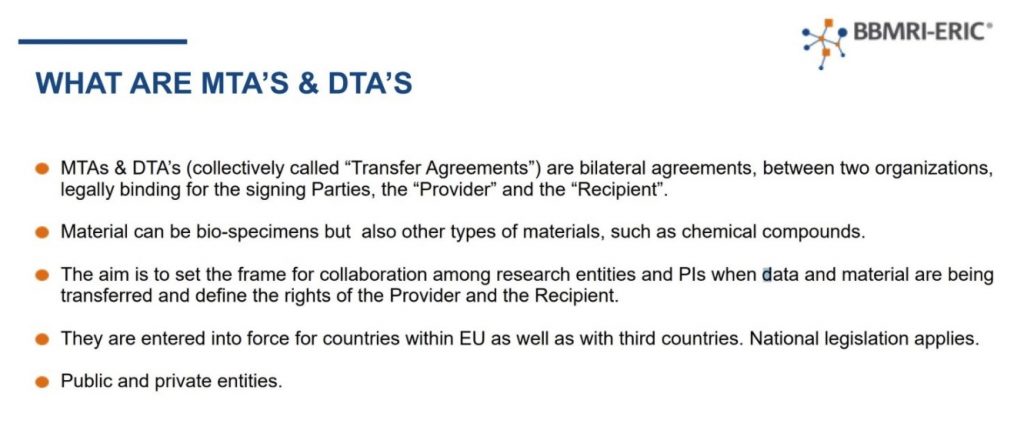Topic: International data sharing: MTA, DTA
What to consider when drafting Material Transfer Agreements and Data Transfer Agreements.
Making data available to others is a way for encouraging connection and collaboration between researchers, which can result in relevant new scientific findings. Thus, data sharing allows researchers to share information and resources with other scholars.
Such sharing can occur at the local or national level or within the EU or, more broadly, at the international level, i.e., beyond the European borders if taking the European perspective.
International data-sharing needs a solid data protection law framework. In Europe the legal framework for allowing international transfers can be found mainly in the General Data Protection Regulation (GDPR).
Such transfer may then occur, on the basis of the GDPR, through adequacy decisions or contractual agreements (such as Material Transfer Agreements or Data Transfer Agreements according to their object) or other contractual clauses.
Material Transfer Agreements and Data Transfer Agreements

BBMRI Resources
Webinar: Material and Data Transfer Agreements (MTA/DTA)
Material and Data Transfer Agreements are crucial contractual documents in health research projects when transferring samples or data. However when is an MTA/ DTA really necessary and what should be included? Who has authority to sign these Agreements? This webinar provides answers to these common questions.
Templates
Any use of these sample templates is the exclusive responsibility of the respective users.
- Sample Material Transfer Agreement
- Sample Data and Material Transfer Agreement
- Data Transfer Guide for African States/EU Member States
- Sample Data Transfer Agreement – Outgoing for Data Transfer within the EU
- Here you can find templates for Collaboration Agreements, Confidentiality Agreements, and MTA/DTAs
Relevant Data Protection Regulation
- Fundamental Rights
- Rules on international data transfers
- The General Data Protection Regulation (GDPR)
- The Data Protection Law Enforcement Directive
- National data protection authorities: EU countries have set up national bodies responsible for protecting personal data in accordance with Article 8(3) of the Charter of Fundamental Rights of the EU.





